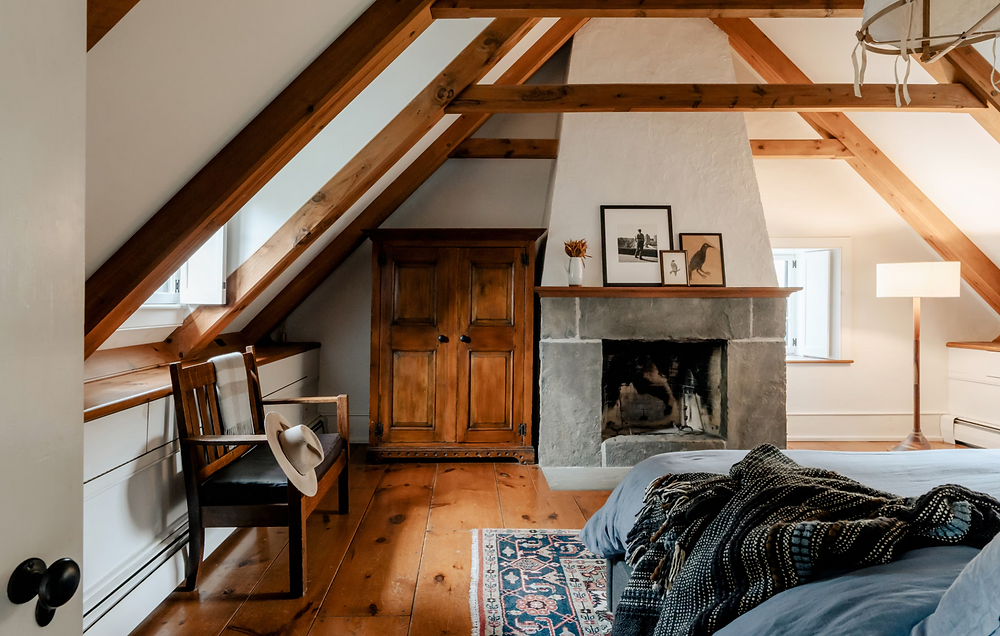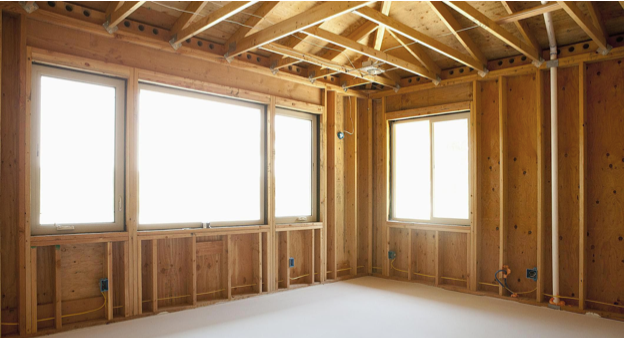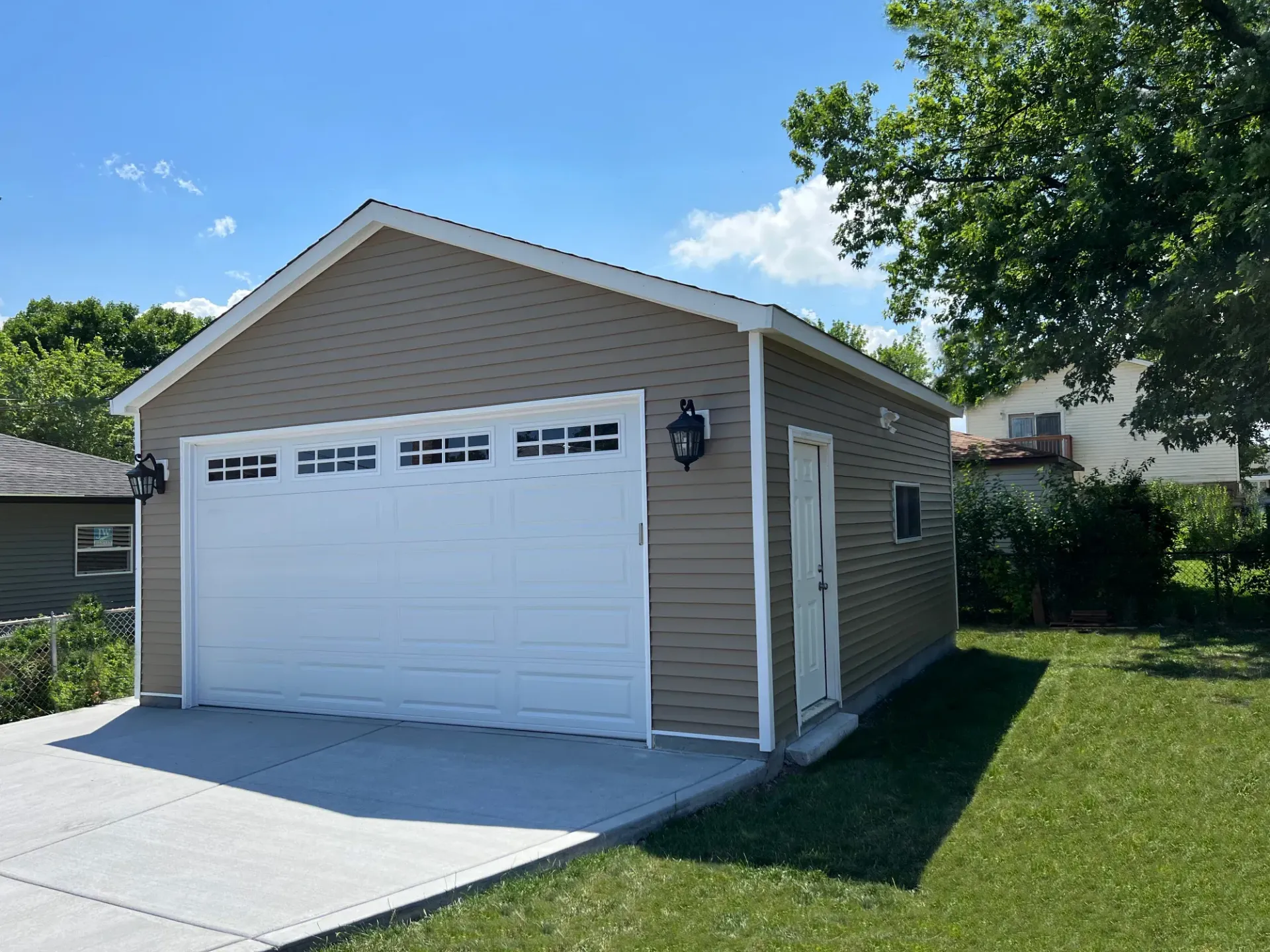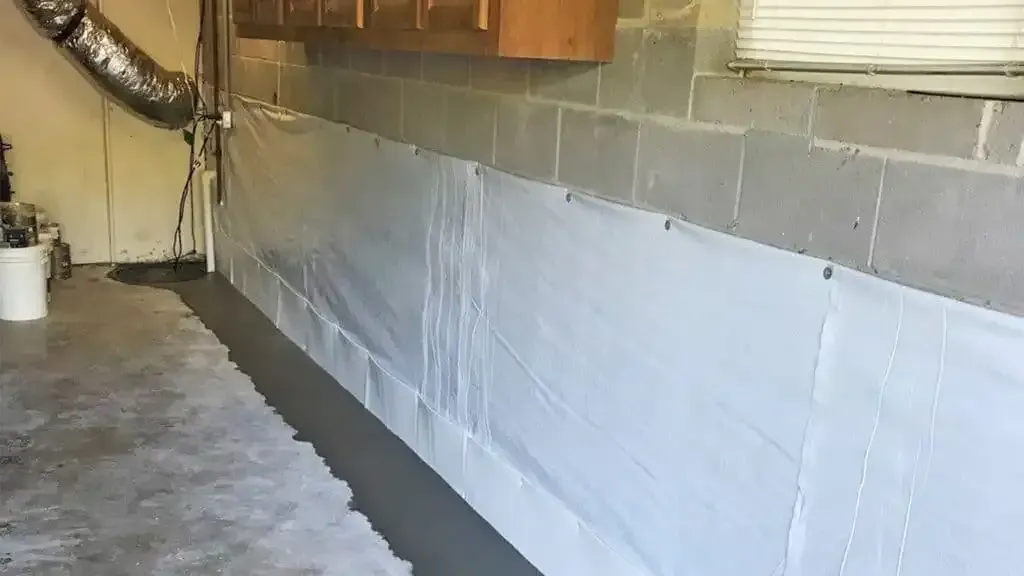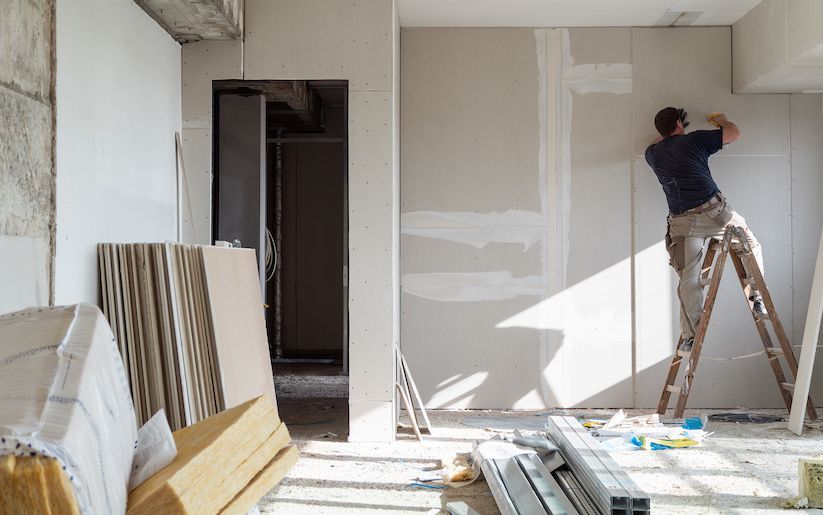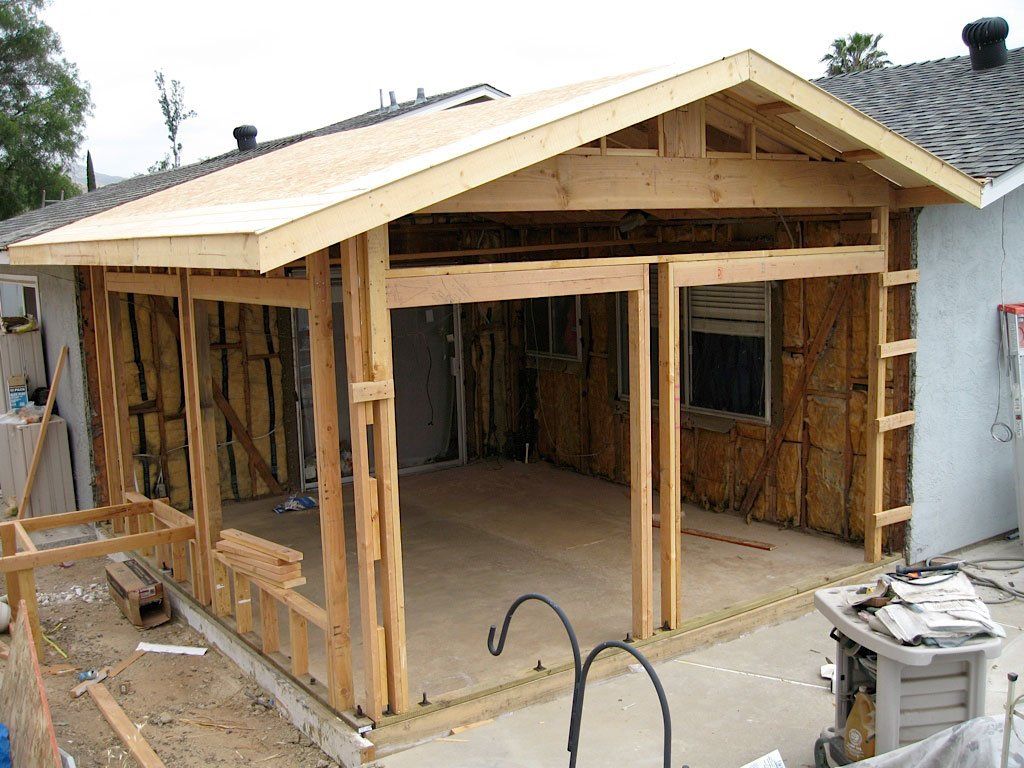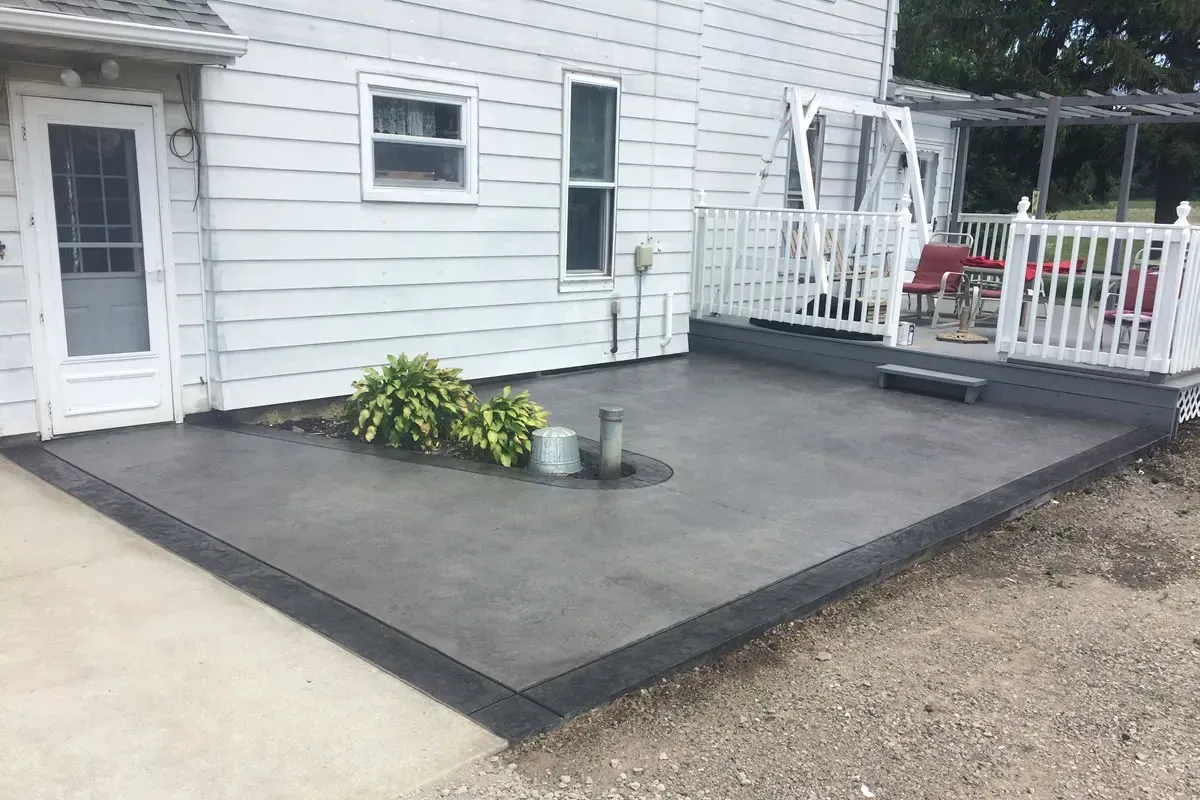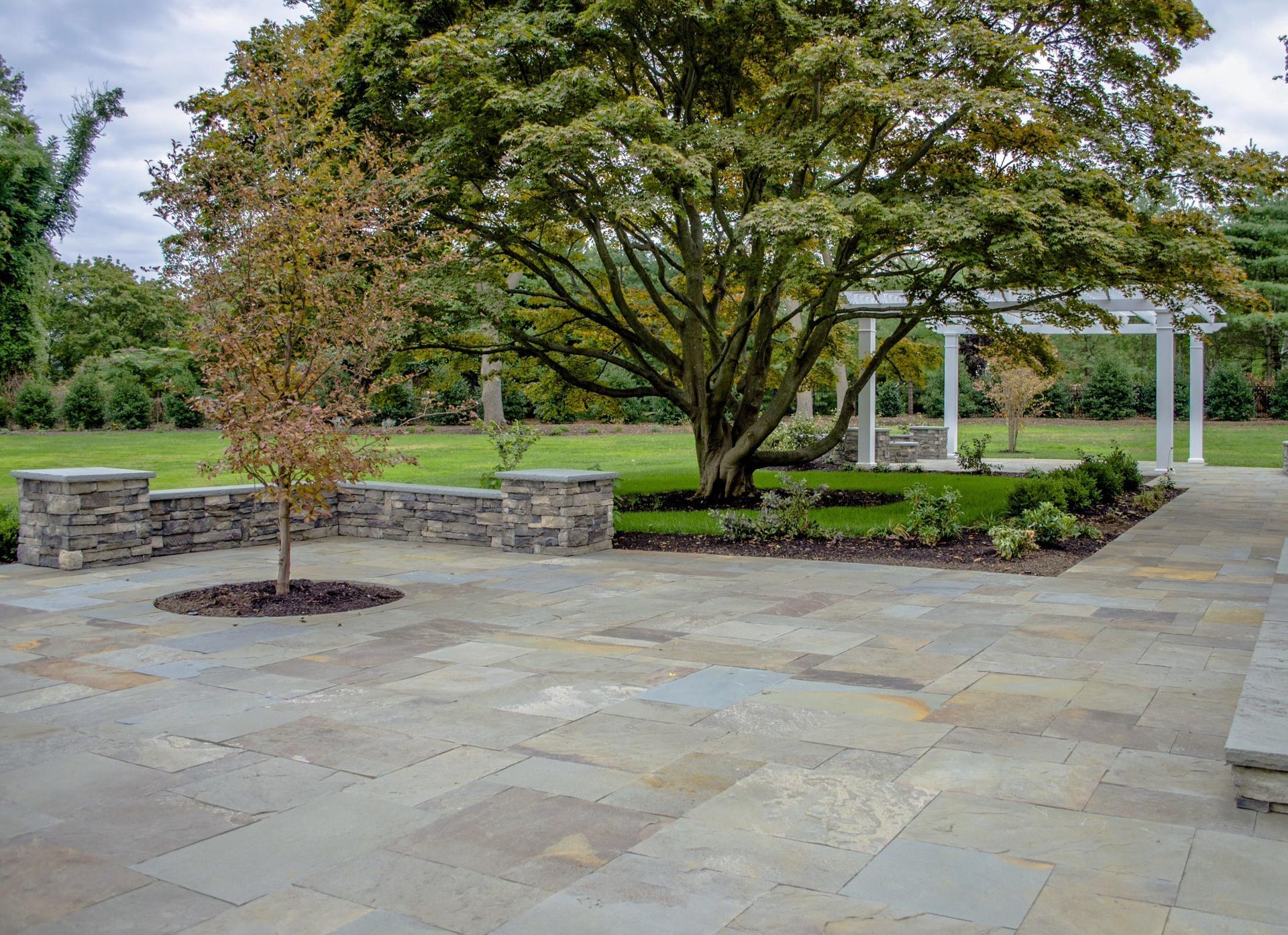What’s Better for Rhode Island: Wood Deck or Stone Patio?
For most Rhode Island homeowners, a stone patio is the better long-term choice due to the Ocean State's harsh coastal climate, high humidity, and freeze-thaw cycles. However, wood decks can work well with proper material selection and maintenance.
Choose a Stone Patio if you want:
- Low maintenance outdoor space
- Durability against RI's coastal weather
- Higher property value return
- Ground-level outdoor living
Choose a Wood Deck if you want:
- Elevated outdoor space
- Lower upfront costs
- Natural wood aesthetics
- Multi-level design options
Rhode Island Climate Challenges for Outdoor Spaces
Why Rhode Island's Weather Matters for Your Decision
Rhode Island's unique coastal climate creates specific challenges for both wood decks and stone patios that homeowners must consider:
Coastal Salt Air: Ocean proximity throughout the state exposes outdoor structures to salt spray, which accelerates wood decay and can affect some stone materials.
High Humidity: Rhode Island averages 70% humidity year-round, creating ideal conditions for wood rot, mold, and mildew on deck surfaces.
Freeze-Thaw Cycles: Winter temperatures regularly fluctuate around freezing, causing expansion and contraction that can damage poorly installed patios and stress deck joints.
Heavy Precipitation: With 47 inches of annual rainfall plus significant snowfall, proper drainage and water resistance are crucial for any outdoor structure.
Hurricane Exposure: Coastal storms and high winds require robust construction methods for both decks and patios in Rhode Island.
Stone Patio Advantages in Rhode Island
Weather Resistance
Stone patios excel in Rhode Island's challenging climate conditions. Natural stone and concrete pavers handle freeze-thaw cycles better than wood, with minimal expansion and contraction issues.
Popular Rhode Island Stone Options:
- Bluestone: Quarried locally, naturally slip-resistant, handles salt exposure well
- Granite: Extremely durable, resists staining, perfect for coastal conditions
- Flagstone: Natural beauty, good drainage properties, complements New England architecture
- Concrete Pavers: Cost-effective, consistent appearance, excellent durability
Low Maintenance Requirements
Stone patios require minimal ongoing maintenance compared to wood decks in Rhode Island's harsh environment:
- No annual staining or sealing required for most stone types
- Simple cleaning with pressure washing or mild detergent
- Minimal seasonal preparation needed for winter weather
- Long-term cost savings on maintenance and replacement
Property Value Impact
Stone patios typically provide better return on investment for Rhode Island homes:
- Higher resale value due to perceived permanence and quality
- Broader buyer appeal across different age demographics
- Lower maintenance concerns for potential buyers
- Complement to historic New England architecture common throughout RI
Wood Deck Advantages in Rhode Island
Design Flexibility
Wood decks offer unique advantages for certain Rhode Island properties:
- Multi-level designs perfect for sloped coastal lots
- Elevated views taking advantage of water views common in RI
- Integration with existing structures like colonial and Victorian homes
- Custom railings and built-ins for functional outdoor living
Cost Considerations
Wood decks can offer lower initial investment, though long-term costs vary:
- Lower upfront material costs for pressure-treated lumber
- Faster installation reducing labor expenses
- Easier modifications for future changes or additions
Best Wood Options for Rhode Island Climate:
- Pressure-Treated Pine: Most cost-effective, requires regular maintenance
- Cedar: Naturally rot-resistant, beautiful appearance, moderate cost
- Composite Decking: Higher upfront cost but lower maintenance
- Hardwoods (Ipe, Mahogany): Premium options with excellent weather resistance
Climate-Specific Challenges for Each Option
Stone Patio Challenges in Rhode Island:
Winter Ice Formation: Stone surfaces can become slippery during RI's frequent ice storms. Choose textured stones and plan for proper drainage.
Frost Heave: Clay soils common in Providence and Kent Counties can cause frost heave. Proper base preparation and drainage are essential.
Salt Damage: Deicing salts can stain some stone types. Bluestone and granite handle salt exposure better than limestone or sandstone.
Installation Timing: Rhode Island's short construction season can limit installation windows for proper base preparation.
Wood Deck Challenges in Rhode Island:
Moisture Retention: High humidity and frequent precipitation create ideal conditions for wood decay, especially in shaded areas common in wooded RI neighborhoods.
Salt Air Corrosion: Coastal exposure accelerates hardware corrosion and wood degradation, requiring premium fasteners and regular maintenance.
Hurricane Damage: High winds can lift decking boards and damage railings. Proper installation and regular inspection are crucial.
Seasonal Maintenance: Annual cleaning, staining, and repairs are necessary to prevent premature failure in RI's climate.
Cost Comparison for Rhode Island Homeowners
Initial Installation Costs (Per Square Foot):
Stone Patios:
- Concrete Pavers: $8-15 per sq ft installed
- Natural Bluestone: $12-25 per sq ft installed
- Premium Granite/Flagstone: $15-35 per sq ft installed
Wood Decks:
- Pressure-Treated Pine: $10-18 per sq ft installed
- Cedar Decking: $15-25 per sq ft installed
- Composite Decking: $20-35 per sq ft installed
- Premium Hardwoods: $25-45 per sq ft installed
Long-Term Cost Analysis (20-Year Period):
Stone Patio Total Cost of Ownership:
- Initial installation plus minimal maintenance
- Occasional resealing (every 5-10 years for some stones)
- Potential joint sand replacement
- Total: 110-130% of initial cost
Wood Deck Total Cost of Ownership:
- Initial installation plus regular maintenance
- Annual cleaning and staining ($2-4 per sq ft)
- Board replacement (10-15% every 10-15 years)
- Total: 180-250% of initial cost
Local Rhode Island Considerations
Municipal Requirements
Different Rhode Island communities have varying requirements for outdoor structures:
Providence: Requires permits for decks over 30 inches high, specific setback requirements for patios
Newport: Historic district considerations may favor stone patios that complement period architecture
Warwick: Coastal zone regulations affect both deck and patio installations near water
Cranston: Clay soil conditions require special attention to patio base preparation
Neighborhood Factors
Historic Districts: Federal Hill, Benefit Street, and other historic areas often favor stone patios that complement period architecture
Coastal Communities: Narragansett, Westerly, and Little Compton require materials that handle salt air exposure
Wooded Areas: Foster, Glocester, and rural areas may favor wood decks that blend with natural surroundings
Best Practices for Each Option in Rhode Island
Stone Patio Installation Best Practices:
- Proper base preparation with 4-6 inches of crushed stone base
- Drainage considerations essential for clay soils
- Frost-resistant installation below frost line where required
- Quality joint sand to prevent weed growth and settling
Wood Deck Installation Best Practices:
- Premium fasteners rated for coastal exposure
- Proper ventilation underneath to prevent moisture buildup
- Adequate post footings below RI's 48-inch frost line
- Annual maintenance schedule including cleaning and staining
Environmental Impact and Sustainability
Stone Patio Environmental Factors:
- Local sourcing: Rhode Island bluestone reduces transportation impact
- Longevity: 50+ year lifespan reduces replacement needs
- Recyclability: Natural stone can be reused in future projects
- Heat island effect: Dark stones can increase local temperatures
Wood Deck Environmental Factors:
- Renewable resource: Responsibly harvested wood is sustainable
- Carbon sequestration: Wood stores carbon throughout its lifespan
- Chemical treatments: Pressure-treated lumber requires careful disposal
- Shorter lifespan: More frequent replacement increases environmental impact
Making the Right Choice for Your Rhode Island Property
Choose a Stone Patio if:
- Your property has good drainage and stable soil
- You prefer low-maintenance outdoor spaces
- You want maximum return on investment
- Your home style complements natural materials
- You're near the coast and concerned about salt air damage
Choose a Wood Deck if:
- You need an elevated outdoor space for views or sloped lots
- You prefer the natural warmth and feel of wood
- Your budget favors lower upfront costs
- You don't mind regular maintenance schedules
- You want built-in features like benches or planters
Hybrid Solutions for Rhode Island Homes
Many Rhode Island homeowners are choosing combination approaches:
- Stone patio with wooden pergola for ground-level entertaining with overhead structure
- Multi-level design with stone patio and elevated wood deck sections
- Composite deck boards on stone or concrete foundations
- Stone fire pit areas connected to wooden deck spaces
Professional Installation Considerations
Why Professional Installation Matters in Rhode Island:
Soil Conditions: Understanding local clay content and drainage requirements
Climate Expertise: Knowledge of proper materials and techniques for coastal exposure
Permit Navigation: Familiarity with varying municipal requirements across RI
Seasonal Planning: Scheduling around Rhode Island's construction seasons
Utility Awareness: Experience with underground utilities common in developed areas
For expert guidance on choosing between a stone patio or wood deck for your Rhode Island property,
Rockhouse Construction brings years of experience working with the Ocean State's unique climate challenges and local requirements. Our team understands the specific soil conditions, weather patterns, and municipal codes throughout Rhode Island, from Providence's urban environment to coastal communities like Newport and Westerly.
Whether you're leaning toward the low-maintenance durability of a stone patio or the elevated beauty of a custom wood deck, we'll help you make the right choice for your property and lifestyle.
Contact us today for a personalized consultation and detailed proposal tailored to your Rhode Island home's specific needs and conditions.


